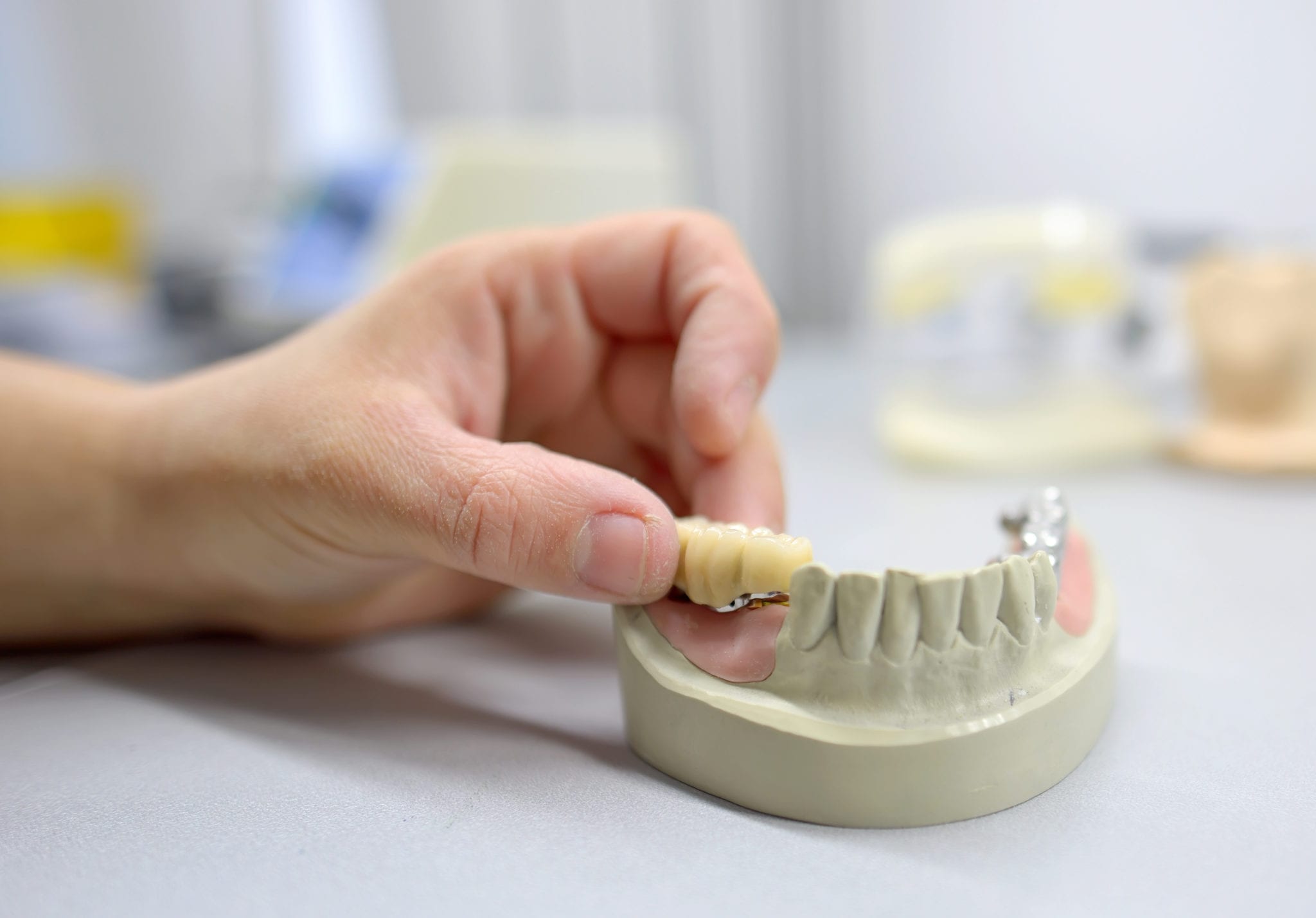
The need to replace permanently damaged teeth can leave you scrambling for solutions. Sometimes, figuring out which one can be confusing, especially because there are a number of really great options out on the market today.
While many professionals may recommend choosing dental implants, in some situations a fixed bridge may be a better option for you.
We want to provide you our perspective on the benefits of choosing a fixed bridge in case it makes the most sense when the time comes for you to decide.
Fixed Bridge vs. Implant: What’s the Difference?
Dental implants are a comparatively newer method of teeth replacement than bridges and dentures, though both procedures have been around a long time.
The primary difference is exactly what you think: Implants are implanted (more permanent) while fixed bridges are only fixed to the structures around it.
The Implant Process
Implanting a replacement tooth involves drilling down and then screwing a permanent root structure into the bone. The “root” is made from titanium and is a small screw-shaped piece called a post.
Your body needs between 6 and 12 weeks to heal after the initial installation. Once your gums have bonded to the root, a replacement tooth (a crown) is attached to the portion of the post that is above the gumline.
The Fixed Bridge Process
A more traditional but still extremely effective alternative to dental implant surgery is having a dental bridge made and fixed to the existing teeth surrounding it. A dental crown is placed on each side of the space where a tooth should be, and a false tooth is linked between them to fill in the empty space.
False teeth are made from a variety of materials including gold, porcelain, alloy, or any combination of the three.
Once the bridge is cemented in, typically there is only one or two follow up visits for any adjustments that might need to be made. Much quicker than the months of work involved with implants.
The Dental Bridge: When Is It a Better Option?
Fixed bridges are generally preferred to dentures for their higher degree of comfort. When choosing between a fixed bridge and an implant, however, often the implant really is the better choice.
Lower Immediate Costs
The cost difference between the two is considerable. The average cost of a complete single implant procedure is about $4,000. A bridge will cost roughly half of that. Note, though, that fixed bridges need replacing every 10 to 15 years. Implants don’t.
Less Invasive
Depending on a patient’s pre-existing conditions and overall health, the surgery component of implants may not be an option. Your dentist will be able to help you decide whether you are a good candidate.
Less Time Involved
Obviously, when there is no surgery involved, there is less recovery time. There are also fewer steps when you opt for a bridge which means fewer appointments for you before you’re back to feeling confident about your smile.
Three Types of Dental Bridges: Which One Should I Get?
There are primarily three different types of dental bridges your dentist may consider: the traditional, the cantilever, and Maryland bonded bridge.
Traditional Bridges
Traditional bridges are the most common type, and most patients choose ceramic for a more natural look.
Maryland Bonded Bridges
Maryland Bonded bridges involve a single false tooth with metal “wings” attached (instead of crowns on the adjacent supporting teeth).
Cantilever Bridges
This type of bridge is used only when there isn’t a supporting tooth on either side of the space but often isn’t recommended due to the strain it places on the tooth that does support it.

Once you determine a fixed bridge is the best option for you, your dentist can help you choose what kind of bridge makes sense for your unique situation.
For questions about any of these options, or whether you’re a better candidate for any of them, feel free to reach out to South Florida Dental for answers!






